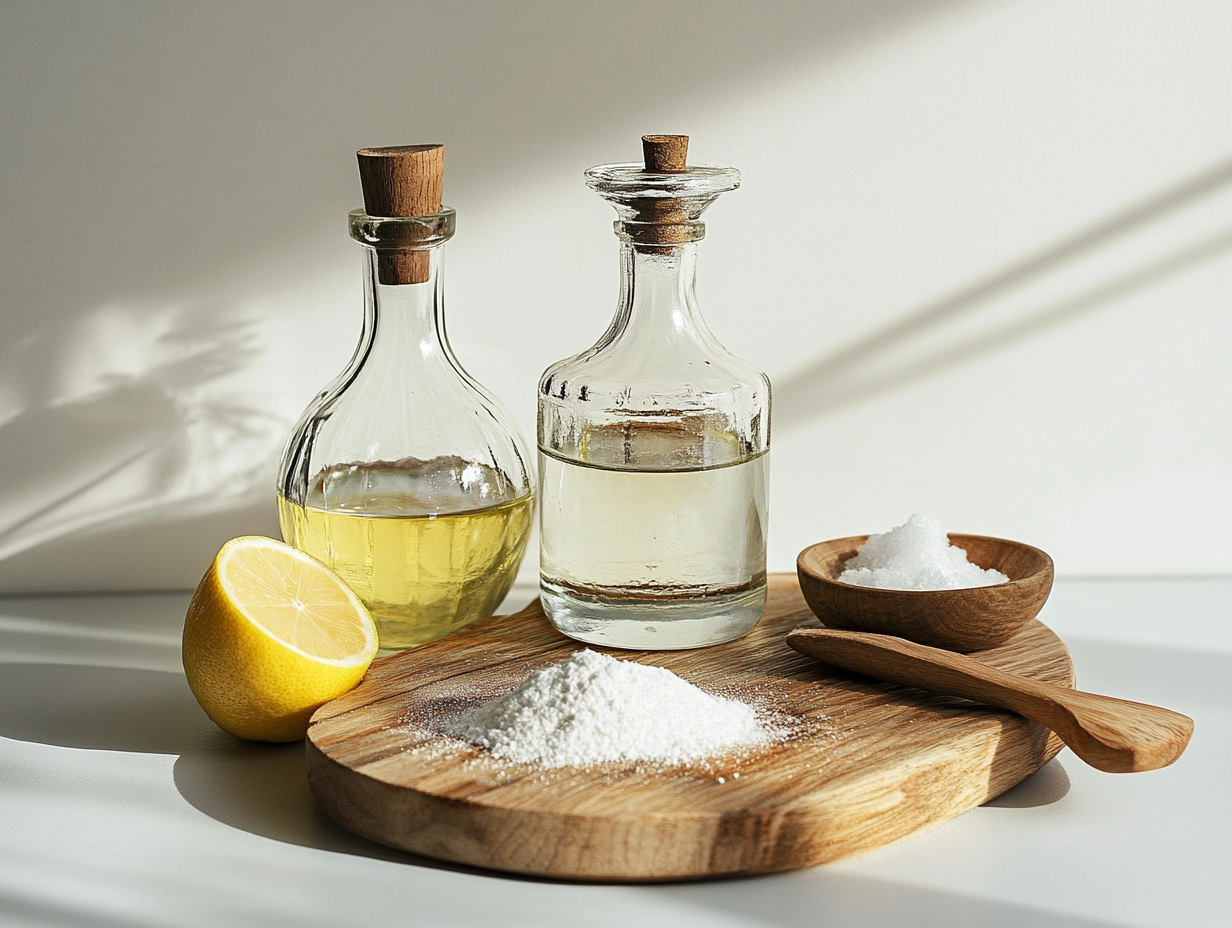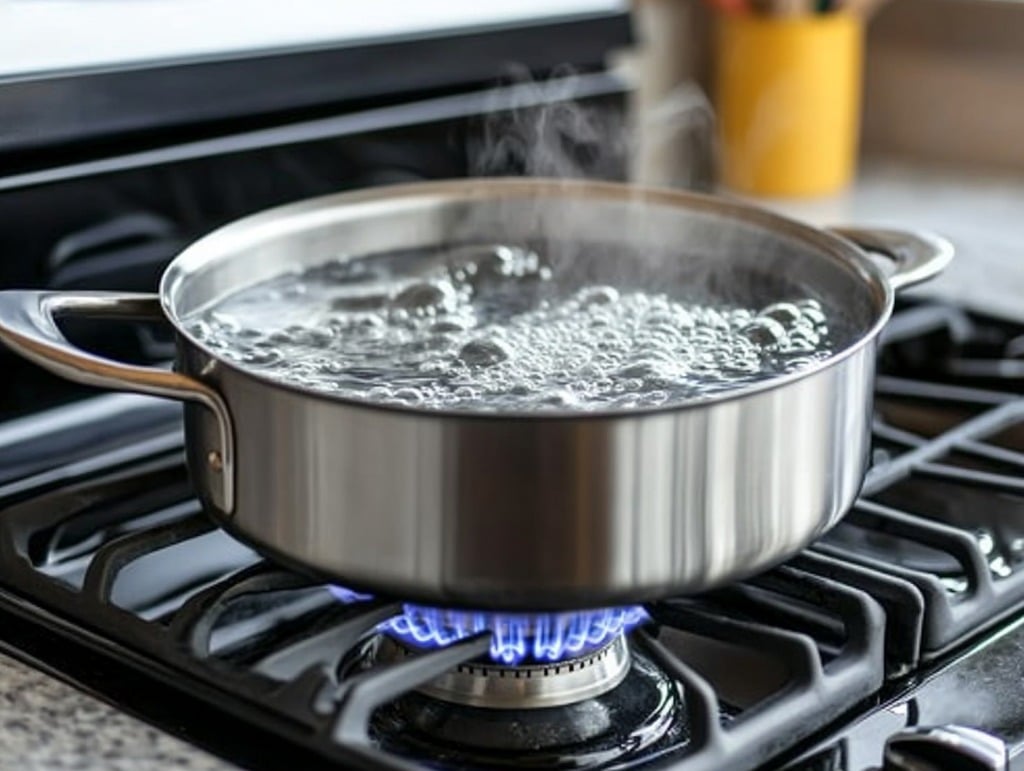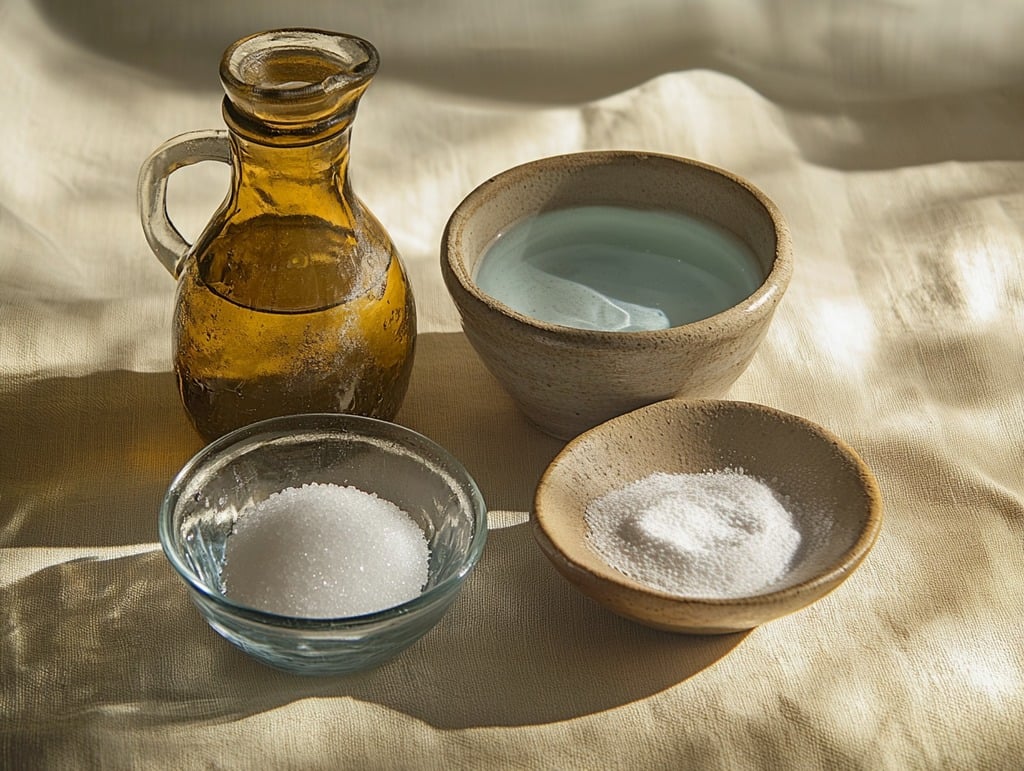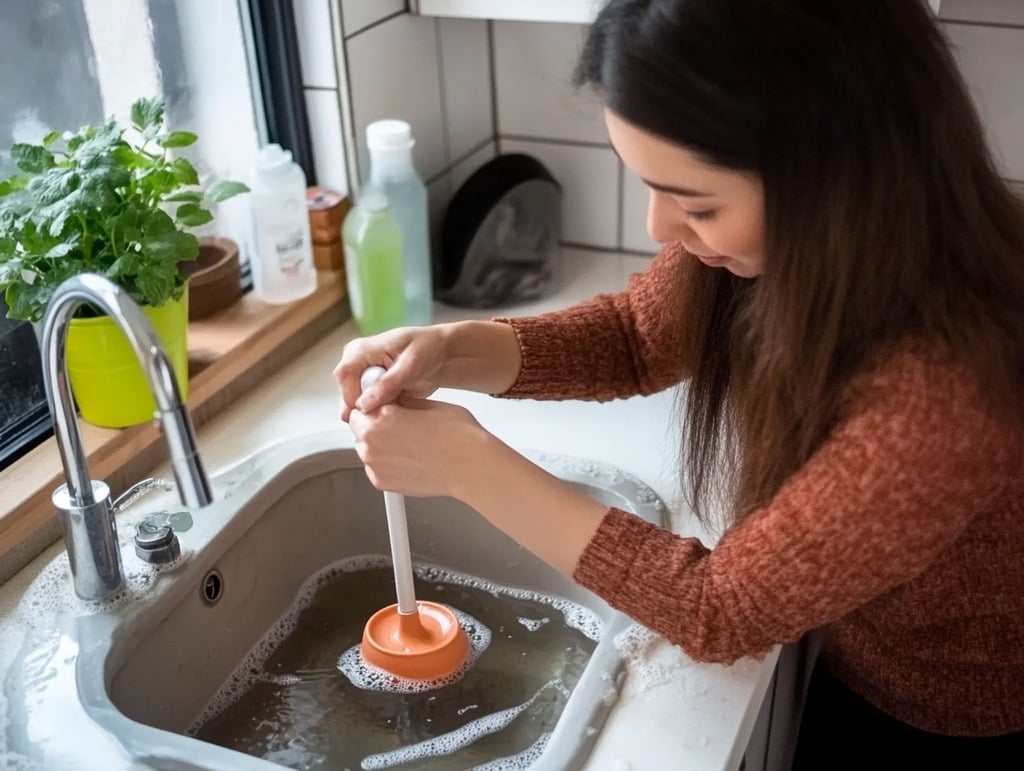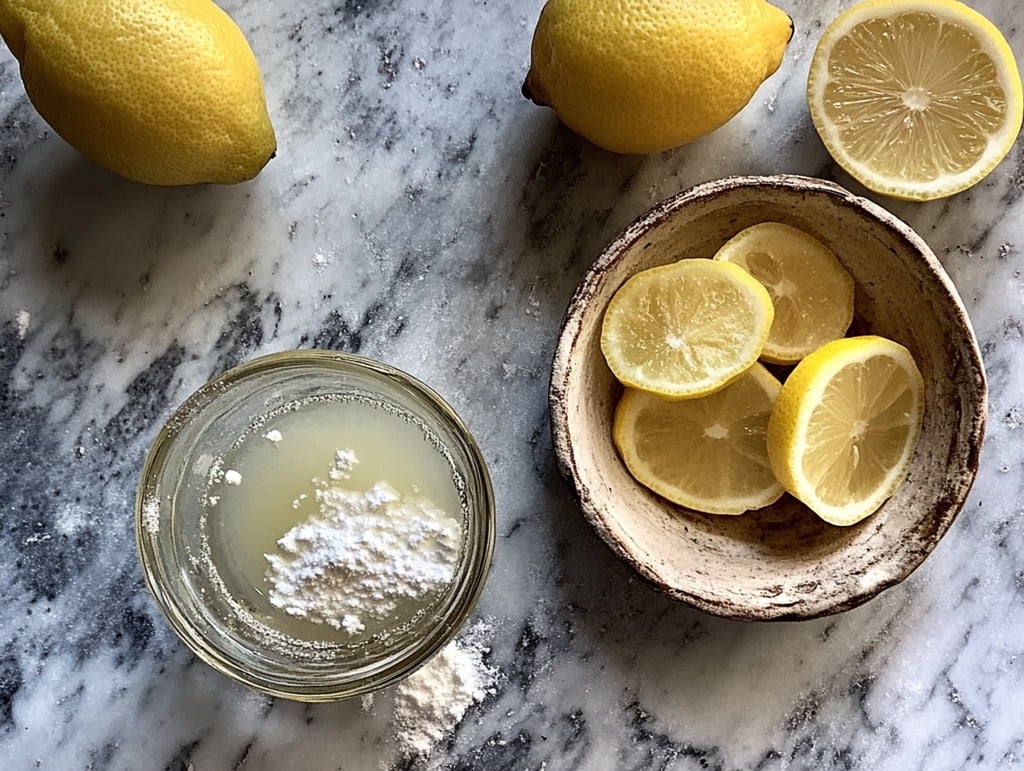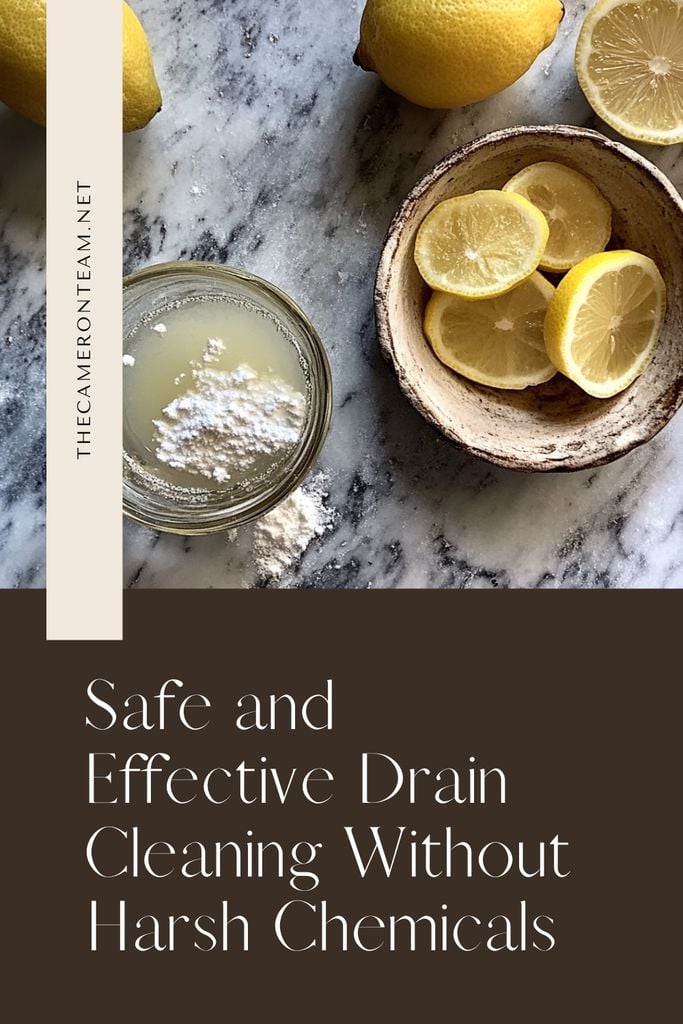Got a clogged drain? It’s tempting to reach for a store-bought chemical drain cleaner, but those harsh solutions can harm your pipes, damage the environment, and even affect your indoor air quality. The good news? There are safer, natural alternatives that work wonders to keep your drains clear and clean without compromising your health or the planet.
In this blog, we’ll dive into chemical-free methods to clean your drains, using everything from kitchen ingredients to easy DIY tools. Whether it’s your kitchen sink, bathroom shower, or bathtub, these tips will help you keep those pipes clog-free and flowing smoothly. Ready to get started?
Why Avoid Chemical Drain Cleaners?
Before we dive into the solutions, let’s talk about why skipping harsh chemical cleaners is so important.
- Pipe Damage – Over time, harsh chemicals can corrode and weaken pipes, leading to leaks or even pipe bursts. If you live in an older home with dated plumbing, this can be especially risky.
- Environmental Impact – Chemical drain cleaners often contain ingredients like lye, bleach, or sulfuric acid, which can be harmful when they enter the water system. These chemicals can disrupt aquatic life and pollute water sources.
- Health Risks – The fumes from these cleaners can irritate your eyes, skin, and lungs. For households with children or pets, chemical cleaners pose an even higher risk.
By choosing natural methods, you’re doing a favor for your home, the environment, and your health. Let’s look at some effective chemical-free options!
1. Boiling Water
Let’s start with the simplest method – plain old boiling water.
How It Works:
Hot water can dissolve some of the fatty deposits that build up in drains over time. This is especially effective for kitchen sinks where grease is often the main culprit.
How to Use It:
- Boil a pot of water.
- Carefully pour it down the drain in stages, allowing each round of hot water to work its way through.
- Repeat 2-3 times if needed.
Best For: Kitchen sinks and minor clogs in bathroom sinks.
2. Baking Soda and Vinegar Solution
The baking soda and vinegar combo is a classic for a reason. This reaction creates carbon dioxide bubbles, which can help dislodge minor clogs.
How to Use It:
- Pour 1/2 cup of baking soda down the drain.
- Follow it with 1/2 cup of white vinegar.
- Immediately plug the drain to trap the reaction below the surface.
- Let it sit for 15-30 minutes.
- Flush with hot water to push the loosened debris through.
Best For: Light clogs in kitchen or bathroom sinks. This method is also effective for deodorizing drains.
3. Salt, Baking Soda, and Hot Water
For tougher clogs, try adding salt to the baking soda and hot water mix. Salt provides extra scrubbing power that can help break down the grime.
How to Use It:
- Mix 1/2 cup of baking soda with 1/2 cup of salt.
- Pour this mixture down the drain.
- Let it sit for 15-30 minutes.
- Flush with boiling water to clear out the debris.
Best For: More stubborn clogs, especially in bathroom drains where hair and soap scum often build up.
4. Plunger Magic
Don’t underestimate the humble plunger. While it’s usually associated with toilets, it can also be an effective tool for sink and bathtub drains.
How to Use It:
- Place the plunger over the drain, ensuring a good seal.
- Fill the sink or tub with enough water to cover the plunger head.
- Pump the plunger up and down several times.
- Quickly lift the plunger to break the suction, which can help dislodge the clog.
Best For: Sinks, showers, and tubs with standing water due to clogs.
5. Drain Snake or Zip-It Tool
If you’re dealing with hair clogs, a drain snake (or a cheap plastic “zip-it” tool) is a lifesaver. This tool is specifically designed to pull hair and other debris out of your drain without any chemicals.
How to Use It:
- Insert the snake into the drain until you feel resistance.
- Rotate the tool to catch any hair or gunk.
- Slowly pull it back out to remove the clog.
Best For: Shower and bathtub drains, which tend to get clogged with hair.
6. Lemon Juice and Baking Soda
For a fresher-smelling drain along with clog-busting power, try using lemon juice. It works similarly to vinegar but adds a pleasant, natural scent.
How to Use It:
- Pour 1/2 cup of baking soda down the drain.
- Follow with 1/2 cup of lemon juice.
- Let it sit for 15-30 minutes.
- Rinse with hot water.
Best For: Kitchen sinks and bathroom drains that could use a little deodorizing.
7. Enzyme Cleaners (Eco-Friendly Option)
If you prefer a store-bought solution, look for enzyme-based drain cleaners. These products contain natural enzymes and bacteria that break down organic matter in your pipes without any harmful chemicals.
How to Use It:
- Follow the instructions on the label.
- These cleaners typically work best overnight, so pour them down before bed and rinse with hot water in the morning.
Best For: Regular maintenance and slow drains.
Preventive Tips to Keep Drains Clear
Prevention is the best cure! Here are some habits to adopt to keep your drains flowing smoothly:
- Use Drain Covers: These can catch hair, food particles, and other debris before they enter the pipes.
- Dispose of Grease Properly: Avoid pouring cooking oil or grease down the sink. Let it cool, then dispose of it in the trash.
- Run Hot Water After Use: After using the sink, run hot water to flush out any oils or soap that could solidify in the pipes.
- Do Regular Maintenance: A monthly flush with hot water and a vinegar-baking soda treatment can help prevent buildup.
FAQs
Q: How often should I clean my drains?
A: For preventive maintenance, aim to clean your drains every month using natural methods. If you notice slow drainage, tackle it right away before it turns into a bigger problem.
Q: Can I use these methods in garbage disposals?
A: Absolutely! Baking soda, vinegar, and hot water work well for garbage disposals. Just make sure to flush thoroughly to clear any debris.
Q: Are there any natural ways to prevent drain odors?
A: Yes! A combination of baking soda, vinegar, and hot water can help keep drains fresh. Adding a few lemon peels in your garbage disposal also works wonders for odor control.
Wrapping Up
Cleaning your drains doesn’t have to mean filling your home with toxic chemicals. With simple, natural methods and a bit of regular maintenance, you can keep your drains flowing smoothly and smelling fresh. Next time you’re faced with a clog, try one of these eco-friendly solutions before reaching for the harsh stuff!

